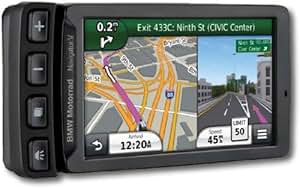For decades, GPS navigation has been a cornerstone of modern life, guiding us through unfamiliar streets, helping delivery services reach their destinations, and even directing autonomous vehicles. But the current system, while largely reliable, has inherent vulnerabilities. Blockchain technology, with its promise of enhanced security, transparency, and decentralization, could be the key to unlocking a new era of GPS navigation, one that is more accurate, secure, and ultimately, more beneficial to users.
The Current Limitations of GPS Navigation

While GPS works remarkably well, its existing infrastructure has limitations. Centralized systems, susceptible to manipulation and single points of failure, are a major concern. Accuracy can be affected by signal interference, atmospheric conditions, and even intentional jamming. Privacy is another issue; the data collected by GPS systems is often stored and used in ways that users may not fully understand or control.
Furthermore, the reliance on a limited number of satellite constellations means that GPS can be unreliable in areas with poor satellite coverage, such as dense urban environments or remote locations. This dependence on centralized control points and limited access to data can hinder innovation and efficiency.
Blockchain: A Decentralized Solution for GPS Accuracy and Security

Blockchain technology, at its core, is a decentralized, distributed ledger that records and verifies transactions securely. Its application to GPS navigation offers several compelling advantages:
Enhanced Accuracy through Decentralized Data Verification
Imagine a system where GPS data isn’t solely reliant on a few central servers. Instead, a blockchain network could verify and timestamp location data from multiple sources, including satellites, ground stations, and even user devices equipped with sensors. This decentralized approach would significantly reduce the impact of individual data points being compromised or manipulated, leading to more accurate and reliable positioning.
Improved Security and Tamper-Proofing
The immutable nature of blockchain makes it extremely difficult to alter or delete GPS data once it’s recorded. This provides a high level of security against spoofing attacks, which can lead to inaccurate navigation and potentially dangerous situations. Furthermore, smart contracts – self-executing contracts with the terms of the agreement directly written into code – could automate and secure transactions related to GPS data usage and access.
Enhanced Privacy for Users
Blockchain allows for pseudonymity or even anonymity through techniques like zero-knowledge proofs, meaning users can share their location data without revealing their identities. This enhances privacy considerably, giving users more control over their personal information.
Real-World Applications and Future Possibilities

The integration of blockchain into GPS navigation systems opens doors to many exciting possibilities:
- Autonomous Vehicles: Blockchain could significantly enhance the security and reliability of autonomous vehicle navigation, ensuring the integrity of location data and reducing the risk of accidents.
- Supply Chain Management: Tracking goods and assets in real-time with verifiable location data provides enhanced transparency and reduces the risk of fraud or theft.
- Emergency Services: Accurate and tamper-proof location data is crucial in emergency situations. Blockchain could improve the speed and efficiency of emergency response.
- Smart Cities: Blockchain-enabled GPS could optimize traffic flow, improve public transportation, and enhance the efficiency of city services.
Challenges and Considerations

Despite the considerable potential, the integration of blockchain into GPS navigation faces several challenges:
- Scalability: Handling the massive amount of location data generated globally requires a highly scalable blockchain infrastructure.
- Energy Consumption: Some blockchain networks consume significant amounts of energy, posing environmental concerns.
- Interoperability: Different blockchain platforms need to be able to communicate and share data seamlessly.
- Regulation and Standardization: Clear regulatory frameworks and industry standards are needed to ensure the safe and responsible implementation of blockchain-based GPS systems.
Blockchain technology presents a compelling opportunity to revolutionize GPS navigation, addressing key limitations and offering significant improvements in accuracy, security, and user privacy. While challenges remain, ongoing research and development efforts suggest that a blockchain-powered future for GPS is a very real possibility. As technology continues to evolve, we can anticipate a more efficient, secure, and user-centric navigation experience thanks to this innovative application of blockchain.








